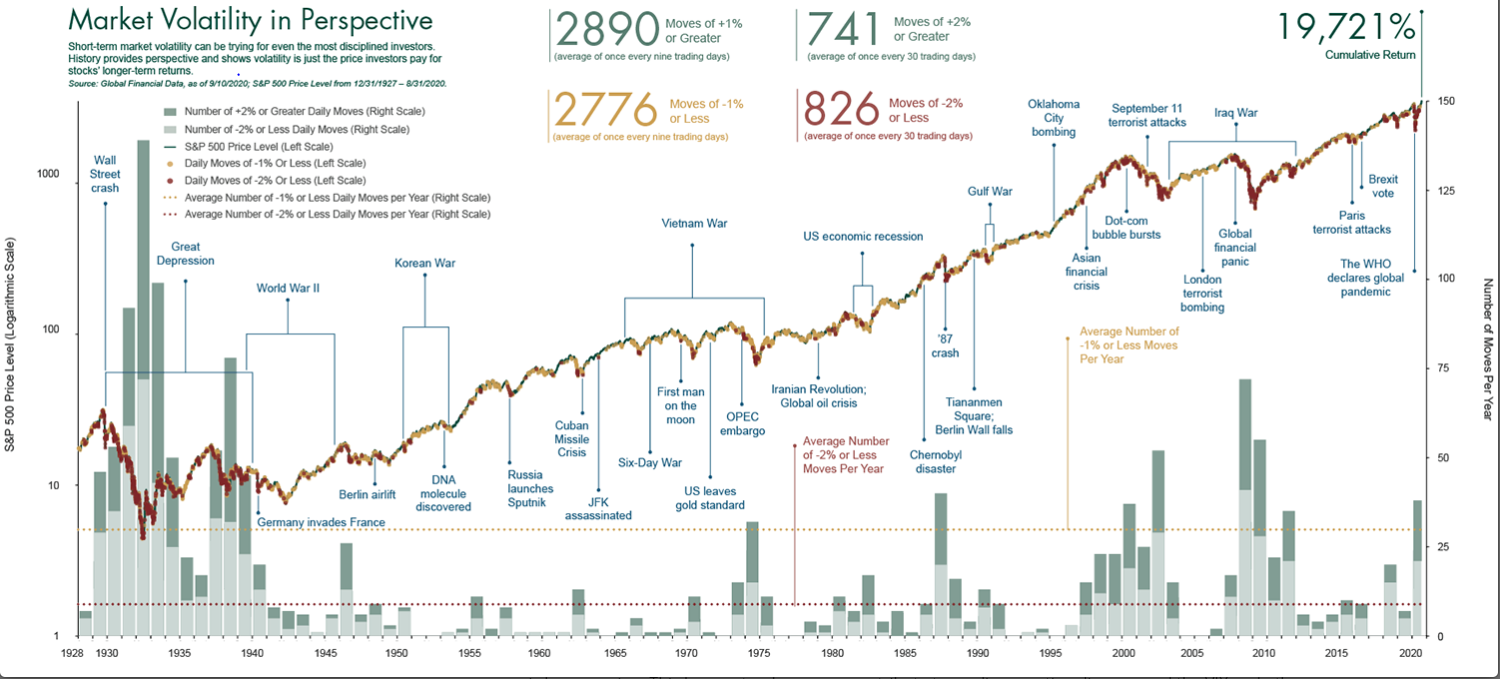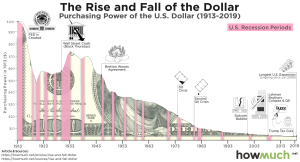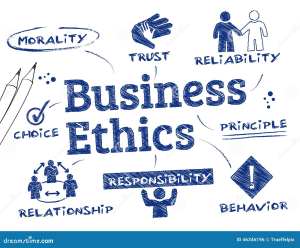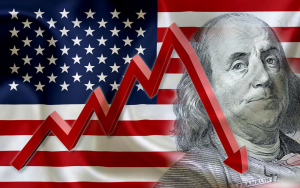The current state of the U.S. economy raises significant concerns as recession fears loom large. As various economic indicators falter, including a notable drop in consumer sentiment and volatile stock market movements, the possibility of a U.S. economy recession has become a pressing topic among investors and analysts alike. The ongoing trade war, coupled with erratic interest rate policies, has only intensified feelings of economic uncertainty across the nation. Experts warn that these factors could spiral out of control, plunging the economy into a downturn. As we navigate these turbulent waters, understanding the interplay between interest rates, consumer behavior, and market stability is essential for anticipating the future.
The discourse surrounding the downturn of America’s financial landscape highlights an impending economic contraction, often referred to as an economic slump. With a backdrop of escalating tensions characterized by tariffs and trade disputes, many economists are raising alarms about the potential for a prolonged economic crisis. This atmosphere of uncertainty, compounded by fluctuating interest rates and diminishing consumer confidence, has left businesses and investors in a quandary. As market resilience wavers, the impact of these socio-economic factors becomes increasingly critical in assessing the broader implications for the nation’s financial health. In exploring alternative terms for this economic predicament, we must recognize the multifaceted challenges that accompany downturns in fiscal performance.
The Current State of the U.S. Economy: A Recession Warning
The U.S. economy is facing significant challenges, with many economists warning of a potential recession. The recent declines in consumer sentiment, highlighted by the University of Michigan’s index reaching a low not seen since late 2022, indicate growing public apprehension about economic conditions. This decline, coupled with rising economic uncertainty fueled by a contentious trade war with countries like China, Mexico, and Canada, has left many Americans questioning their financial future. With layoffs and hiring freezes becoming more common, the specter of economic downturn looms larger.
Moreover, the increased volatility in the financial markets exacerbates these concerns. Following the imposition of tariffs by foreign governments in response to U.S. trade policies, many investors are wary, leading to a stock market selloff. The interaction between higher consumer prices due to tariffs and diminished purchasing power adds further strain on the economy. This situation suggests that without corrective measures, such as effective fiscal policies or resolution of international trade disputes, the U.S. is on precarious ground, potentially heading toward a recession.
Trade War Impact on Economic Stability
The ongoing trade war poses a substantial risk to the stability of the U.S. economy. As tariffs on a range of products have increased, there is growing concern about the impact on manufacturers and consumers alike. Import tariffs can lead to higher costs for businesses, which may be passed on to consumers in the form of increased prices, leading to reduced consumer spending—an essential driver of the U.S. economy. This relationship creates a feedback loop that can lead to decreased consumer confidence and worsening economic conditions.
Furthermore, the uncertainty created by trade disputes disrupts supply chains and discourages investment. Companies are inclined to delay expansion or alter their operations to navigate these new tariffs and trade barriers. As businesses shift into a ‘wait and see’ posture, the resulting slowdown in capital expenditures can stifle economic growth. Without decisive action to resolve trade tensions, the U.S. economy could find itself trapped in a cycle of stagnation, risking a recession as businesses and consumers react to the prevailing uncertainty.
The Role of Interest Rates in Economic Recovery
In response to shifting economic landscapes, the Federal Reserve has a critical role in determining interest rates, which can influence economic recovery. In an environment that hints at recession, the Fed faces difficult choices. Lowering interest rates aims to stimulate economic activity by making borrowing cheaper; however, it must balance this against rising inflation concerns. The interplay of these factors complicates the Fed’s decision-making as it seeks to foster growth while managing inflationary pressures that can arise from tariff-induced price increases.
Currently, the Federal Reserve’s challenge is exacerbated by the overall volatility in the economy. Continuous tariff impositions and erratic government spending threaten to introduce supply shocks that worsen inflation. This dual mandate of managing both inflation and a slowing economy means that the Fed may opt for a cautious approach, potentially deciding to keep interest rates unchanged. Such a decision may help maintain some stability in the financial markets, but it also risks insufficient action if economic conditions deteriorate rapidly.
Consumer Sentiment and Economic Health
Consumer sentiment is a crucial indicator of economic health, as it reflects how optimistic or pessimistic consumers feel about their financial prospects. The recent drop in the University of Michigan’s consumer sentiment index showcases that many Americans are concerned about their economic futures, particularly with rising prices and the potential for a recession. This sentiment influences their spending habits; when confidence wanes, consumer spending typically follows suit, resulting in a downward spiral that can further exacerbate economic struggles.
As consumers tighten their belts, we may witness a decrease in overall retail sales and increased savings rates, further dampening economic growth. The linkage between consumer sentiment and spending is intrinsic to the fabric of the U.S. economy, which relies heavily on consumption. If the prevailing climate of economic uncertainty continues to cloud consumer outlooks, the implications could be dire, possibly leading to prolonged economic stagnation or even a recession.
The Stock Market’s Reaction to Economic Policy
The stock market is often viewed as a barometer of economic health, reflecting investors’ perceptions of future corporate earnings and economic stability. Recent market fluctuations have raised alarms, particularly in response to tariffs and trade disputes. Investors appear increasingly hesitant to commit capital as uncertainties escalate, resulting in heavy losses across various sectors. A market correction can serve as both a reaction to current policies and a harbinger of economic trouble ahead, contributing to an unstable environment.
The concern is that an unstable stock market can adversely affect consumer and business confidence. As investment portfolios shrink, consumer spending could decline, leading to a cyclical downturn in the economy. The stock market’s performance is intricately linked to broader economic indicators, and if investor sentiment continues to falter due to erratic policies and increasing economic uncertainty, we may face a self-fulfilling prophecy where lower stock prices contribute to worsening economic conditions.
Economic Uncertainty and Hiring Trends
Economic uncertainty can significantly influence hiring trends across various sectors. With the threat of a recession looming, many companies have adopted a cautious approach to hiring, fearing that increased costs and reduced consumer spending will lead to lower profits. When businesses anticipate a downturn, they may choose to implement hiring freezes or lay off employees to control costs. This cautious behavior can create a ripple effect, reducing overall employment and potentially leading to higher unemployment rates.
The fallout from decreased hiring can stoke further economic malaise. When more individuals are without work, consumer spending—an essential force driving the U.S. economy—can decline sharply. As economic conditions remain unpredictable due to tariffs and policy changes, employers may continue to delay hiring decisions. This delay not only affects the immediate economic landscape but can also hinder long-term growth prospects as businesses fail to integrate new talent that could enhance productivity and drive innovation.
Future Projections: Will the Economy Recover?
As we look ahead, the question of whether the U.S. economy will recover from its current state hinges on several critical factors. Policymakers are tasked with enacting measures that can effectively counteract the adverse effects of tariffs, economic uncertainty, and shifting consumer behavior. Should there be a comprehensive approach to reconcile trade differences and stimulate growth, a recovery becomes plausible. However, failure to address these issues may lead to a prolonged period of stagnation and potential recession.
Economic recovery will require not only governmental intervention but also resilience from businesses and consumers. Confidence must be restored, bolstered by policies that promote stability in the job market, strengthen consumer sentiment, and stimulate investment. Without this cohesive effort, the risks of recession could materialize, leading to an economic landscape characterized by stagnation and uncertainty for years to come.
The Relationship Between Tariffs and Inflation
The relationship between tariffs and inflation is a crucial component of the current economic dialogue. As tariffs increase the cost of imported goods, these heightened expenses are often passed down to consumers, leading to inflationary pressures. This scenario creates a challenging dynamic for both consumers and policymakers, as rising prices can outpace wage growth, diminishing purchasing power and leading to a decline in living standards for many Americans.
Policymakers must carefully navigate the implications of tariff policies to mitigate inflation while supporting economic growth. Approaches that include targeted subsidies or investment in domestic industries might alleviate some of the adverse effects. However, without a strategic plan to tackle the inflationary aspects of tariffs, the U.S. economy may face the dual threat of rising prices and contracting economic activity, adding fuel to the fire of recession concerns.
Government Policy and Economic Stability
Government policy plays a pivotal role in shaping economic stability and growth. The recent push for increased tariffs under the current administration exemplifies how policy can directly affect market confidence and economic performance. Strong government policies that prioritize economic stability, such as fostering open trade relationships and maintaining regulatory certainty, are essential for encouraging business investment and consumer spending. Conversely, erratic policies can exacerbate uncertainties, leading to decreased market confidence and potential economic turmoil.
To avert a looming recession, the formulation of cohesive and prudent economic policies is paramount. Effective communication and strategies that address both short-term challenges, such as the current trade war, and long-term growth goals can help recalibrate investor and consumer confidence. By prioritizing clarity and predictability in economic policies, the government stands a better chance of fostering a more stable economic landscape, ultimately steering the nation away from recessionary risks.
Frequently Asked Questions
What are the potential effects of a U.S. economy recession due to trade war?
A U.S. economy recession caused by a trade war can lead to significant job losses, decreased consumer spending, and increased prices for goods. Tariffs imposed during a trade war can disrupt international trade relationships, causing supply chain issues and reducing business investments, which further deepens economic uncertainty.
How do rising interest rates impact the likelihood of a U.S. economy recession?
Rising interest rates can constrain borrowing and spending, leading to reduced consumer and business activity. This tightening of financial conditions might provoke a U.S. economy recession if businesses cut back on investments and consumers reduce their spending in response to higher costs of loans.
What role does consumer sentiment play in predicting a U.S. economy recession?
Consumer sentiment is a crucial indicator of economic health. A decline in consumer sentiment suggests that people are worried about their financial future, which can prompt decreased spending. If this trend continues, it may signal an impending U.S. economy recession as consumer demand drives much of economic growth.
Could a stock market crash indicate a forthcoming U.S. economy recession?
Yes, a stock market crash can be a strong signal of economic distress, often reflecting investor fears about future earnings and economic stability. When stock prices plummet, it can lead to decreased consumer confidence and spending, which may contribute to a U.S. economy recession.
What are the signs of economic uncertainty that might lead to a U.S. economy recession?
Signs of economic uncertainty include fluctuating trade policies, rising inflation rates, poor consumer sentiment, and instability in the stock market. These factors can create a climate of risk aversion, leading businesses to hesitate on investments and hiring, which could trigger a U.S. economy recession.
How does the Federal Reserve’s decision on interest rates influence a U.S. economy recession?
The Federal Reserve’s interest rate decisions are pivotal; lowering rates can stimulate economic growth by encouraging borrowing, while raising rates can help control inflation. If the Fed raises interest rates during economic slowdowns, it may exacerbate the conditions leading to a U.S. economy recession.
What strategies can mitigate the impact of a U.S. economy recession?
Mitigation strategies include implementing fiscal stimulus, lowering interest rates, and fostering international trade relations to prevent trade wars. Additionally, enhancing support for affected workers and businesses can help stabilize consumer sentiment and expenditure, potentially averting a U.S. economy recession.
What historical parallels can help forecast a U.S. economy recession?
Historical parallels such as the 1970s stagflation show that high inflation combined with stagnant growth can lead to recession. Current indicators like trade wars and rising interest rates evoke similar concerns about prolonged economic challenges, hinting at the possibility of a U.S. economy recession.
How does a trade war create economic uncertainty in the U.S.?
A trade war can lead to unpredictable tariffs and trade barriers, creating confusion among businesses and investors. This uncertainty can hinder trade relations and supply chains, foreboding negative predictions about economic growth, which may culminate in a U.S. economy recession.
What is the impact of government spending cuts on a potential U.S. economy recession?
Government spending cuts can reduce aggregate demand, leading to slower economic growth and potential job losses, which can exacerbate the risk of a U.S. economy recession. Such cuts can reduce public investment in key sectors, further dampening economic activity.
| Key Issues | Details |
|---|---|
| Trade War | Response from China, Mexico, and Canada to U.S. tariffs fears a prolonged trade war could lead to recession. |
| Consumer Sentiment | University of Michigan index at lowest since Nov 2022, indicating declining consumer confidence. |
| Stock Market | Heavy losses suffered in U.S. markets, raising concerns regarding economic stability. |
| Interest Rates | The Federal Reserve deliberates on interest rate cuts amid economic turmoil. |
| Investment Impact | Tariff policies potentially harming rather than helping investment and economic growth. |
| Economic Forecast | Experts suggest a recession may be more likely due to rising risks and uncertainty. |
Summary
The U.S. economy recession has emerged as a significant concern as trade wars and unpredictable policies cast uncertainty over market stability. With consumer sentiment at its lowest since late 2022 and declining stock market performance, analysts are increasingly wary of potential economic downturns. The Federal Reserve faces a challenging decision on interest rates amid these pressures. If unabated, current trends could lead to a recession, highlighting the urgent need for effective policy responses to stabilize and grow the U.S. economy.




